Profile: Baroness Greengross says 'we need to stop seeing care homes as a last resort'
Baroness Sally Greengross dreams of a future when “people are just people and age is irrelevant”.
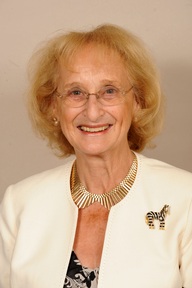
For decades, this indomitable and tireless campaigner has been fighting and lobbying to improve attitudes and policies towards older people.
Baroness Greengross is currently chief executive of the International Longevity Centre UK think tank, which is dedicated to addressing issues of longevity, ageing and population change. She also sits in the House of Lords and is on various cross-party parliamentary groups.
“I think I have had a small part to play in changing attitudes towards older people in the UK and across Europe and that is something I am very proud of, although it is not finished yet and there is still some way to go,” she says modestly.
Martin Green, chief executive of English Community Care Association, the body for independent community care providers, has a different take on it.
He attributes a lot of the changes in recent years to Baroness Greengross who “has made a big difference and has really helped to change people’s perceptions of older people.”
Her most overused phrase is “we must do this very quickly” so it is not surprising that she was named UK Woman of Europe in 1990, awarded the OBE in 2003 and in 2008, presented with the British Society for Gerontology’s Outstanding Achievement Award. She was also honoured in 2011 by the United Nation's NGO Committee on Ageing for her passionate commitment to shaping society in a positive way for the ageing population and for future generations. Her campaigning for older people began when she joined Age Concern in 1975.
“I had worked in the commercial sector and in academia and I thought I would like to work in the voluntary sector and a job came up for Age Concern.
“I was a bit daunted at first but I had worked with children in troubled circumstances and the work was very similar in many ways.” Her interest in older people derives from the fact “there are lot of issues that need raising and policies and procedures that need to be changed”.
Baroness Greengross found when she joined Age Concern, “there was a big part of the population that was being ignored.”
“Nobody thought of the issues that we are all aware of now as they were largely hidden. The voluntary sector was much more traditional then and largely about doing nice things for people not changing policy to the extent we do now.”
She says: “Things are definitely more positive now and older people are seen more as being able to take control of their lives and not being at the end of the road. They are much more assertive about saying what they want.”
Unfortunately ageism does still exist in Britain and Baroness Greengross believes it is “partly to do with fear”.
She says: “There is such a fear about being old and that is primarily to do with the culture we have in our country of worshipping youth.
People are terrified of being old and frail and of dying. There is a stigma about being old and of not being viewed by society as attractive. These negative attitudes to older people are very hard to eliminate.”
“The advances of medicine now have been brilliant and people are living for longer with chronic conditions that used to be acute and kill so we have a lot more frail people and the big and growing problem is dementia. However the majority of older people are very active and we see them out and about and that is good.”
She hopes for a future “when people don’t notice age and people are just people and age is irrelevant”.
Baroness Greengross was director general of Age Concern England from 1987 until 2000. At Age Concern, she established many innovative programmes, including the Employment Forum on Age, and she was also responsible for building Age Concern Enterprises into a multi-million-pound business.
As a commissioner for the Equality and Human Rights Commission, she led an important inquiry into the home care system in England last year. Baroness Greengross has strong views on the care system and would like to see a fundamental change in the way care homes provide services. She says: “We have to change the image of care homes and see them as providing something positive to the community instead of as a last resort.”
“There are many examples of care homes providing really good quality care. If you get care homes right, care homes can be a spearhead for outreach action in the local community.”
“It should be policy in care homes that managers provide outreach services and invite people from the local community into the care homes and have outreach services so if for example Mrs Jones needs to go away for the weekend or overnight and she cares for her mum, her mum can stay at the care home which she already knows well while she is away. Mrs Jones and her mum would already know the care home manager as they would be used to going in there.
“People from the local community should be able to visit the care home and do activities there such as have their hair done or watch a film so it becomes a local hub. The care home should be providing services for the local community. Some care homes and a few retirement villages are already going some way towards doing this but not on the scale I mean. Years ago I wrote a book on this. It is something we need to encourage. I want the care home to be the initiator.”
She also believes better training of care staff would make a big difference.
“A lot of older people who go into hospital shouldn’t be there. They could be cared for in care homes if staff had more training. We don’t value care staff who care for people in their own homes enough. They don’t get enough training and it is a very difficult job.
“The majority of care workers do an amazing job but there are exceptions and they are an affront to civilised society. We need better training for care staff and a change in the way they are valued.
“It isn’t hard to ask a person how they want to be addressed or realise that you shouldn’t separate a couple who have been together for 65 years. We need to have staff recognise that human rights are very important and a useful basis for training.”
While other 77-year-olds are content with pottering around the house and doing the gardening, Baroness Greengross is busy spearheading the grey revolution and making life better for older people.
Her life is busy and frenetic and she has been described as a ‘one-woman whirlwind of energy and commitment’.
She spends her days arguing for better rights for older people, coming up with innovative policy and chairing four all-party parliamentary groups on dementia, corporate social responsibility, intergenerational futures and continence care.
“I myself am not very young but I am very privileged to be able to go on working. It is wonderful and I am very lucky to be able to do that. It is a wonderful field to be in,” she says.
Interesting facts
First job: translator and linguist
Favourite book: Kings and Queens by Eleanor and Herbert Farjeon (it is a very old book that I knew as a child and my children and my grandchildren love it. It is a book of funny verses about kings and queens)
Favourite film: Away From Her (It stars Julie Christie and is about a relationship with someone with dementia)
Favourite piece of music: The Brandenburg Concerto
What is the best present you have received: My four children
Last holiday: A cruise down the Adriatic coast
Latest Profiles News
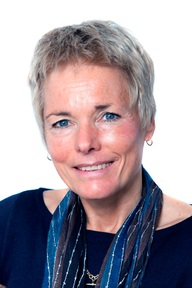 05-Sep-16
Being chief executive of a care home provider is a 'huge responsibility and privilege'
05-Sep-16
Being chief executive of a care home provider is a 'huge responsibility and privilege'
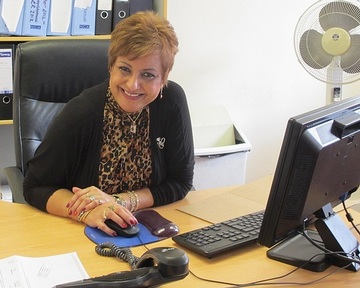 31-Mar-15
Profile: 'Both local and national Government needs to put its money where its mouth is,' says chair of the National Care Association
31-Mar-15
Profile: 'Both local and national Government needs to put its money where its mouth is,' says chair of the National Care Association
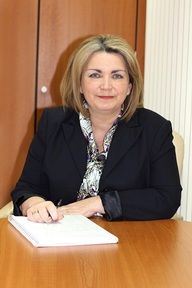 16-Dec-14
Profile: Care home turnaround specialist reveals some of the tricks of the trade
16-Dec-14
Profile: Care home turnaround specialist reveals some of the tricks of the trade
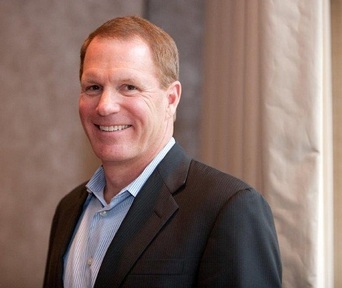 01-Dec-14
Profile: ‘People should not be dreading going into a care home – they should be looking forward to it,’ says care home boss
01-Dec-14
Profile: ‘People should not be dreading going into a care home – they should be looking forward to it,’ says care home boss
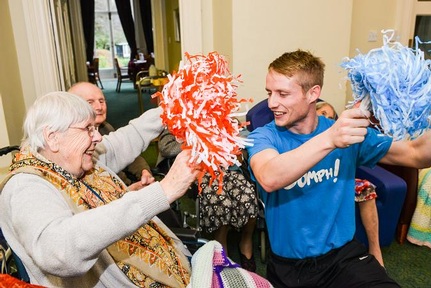 07-Oct-14
Exercise is key to 'changing the care sector' says provider of exercise therapy in care homes
07-Oct-14
Exercise is key to 'changing the care sector' says provider of exercise therapy in care homes